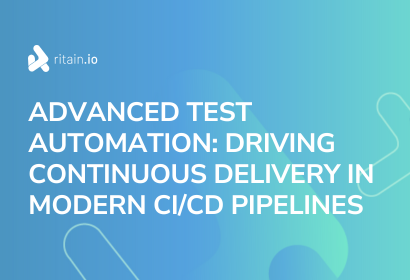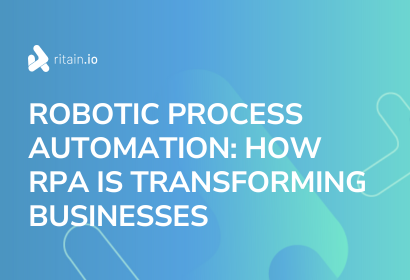BLOGS AND INSIGHTS:
ENSURING QUALITY: THE VITAL ROLE OF QUALITY ASSURANCE & TEST AUTOMATION IN SOFTWARE DEVELOPMENT
In the dynamic field of software development, ensuring that applications are of high quality and reliability is crucial. Quality assurance and test automation are key elements in this process, ensuring that software meets top standards before it reaches users.
We had a conversation with João Lourenço, a skilled professional with vast experience in test automation and software validation. With his proficiency in generating automated testing scenarios and utilizing tools such as Selenium and Cucumber, he ensures effective testing procedures.
Join us as we explore the world of quality assurance and test automation, uncovering insights, strategies, and best practices for seamless software delivery.
Interview with Quality Assurance and Test Automation Expert:
Interviewer: Welcome João, thank you for joining us for this conversation! As an expert in this matter, what do you consider to be the role of quality assurance in software development?
JL: The role of quality assurance in software development is to ensure that applications meet high standards of reliability and performance by systematically testing and verifying every aspect of the software. It´s a crucial step to grant that you will succeed and release a digital solution without any issues.
Interviewer: How does quality assurance contribute to the overall success of a project?
JL: Quality assurance contributes to the overall success of a project by identifying and rectifying defects early in the development cycle, reducing the risk of costly errors, enhancing customer satisfaction, and maintaining the reputation of the product and company. Quality Assurance and Test Automation have become crucial in today’s reality.
Interviewer: Why is test automation crucial in today’s software development processes?
JL: Well, it accelerates testing cycles, increases test coverage, improves accuracy, and allows for the early detection of defects, thereby enhancing overall efficiency and productivity. There are so many benefits for companies that rely on them.
Interviewer: What are the key benefits of implementing test automation?
JL: Firstly, test automation significantly reduces the time and effort required for testing, allowing teams to execute test cases more frequently and efficiently. This leads to faster feedback cycles, shorter development iterations, and ultimately, accelerated time-to-market. Secondly, test automation increases test coverage by enabling teams to execute a larger number of test cases across different configurations and environments. This helps to uncover defects that may not be detected through manual testing alone. Also, test automation improves the reliability of test results by eliminating human errors and ensuring consistent test execution. Overall, I believe the adoption of test automation results in improved software quality, reduced costs, and enhanced team productivity. You can also find other benefits on our blog about reasons why companies should implement a test automation strategy.
Interviewer: Can you tell us about Ritain.io’s approach to test automation?
JL: At Ritain.io, our approach to test automation is rooted in the principles of efficiency, reliability, and scalability. We emphasize the creation of robust and maintainable automated test suites that cover critical functionalities and business scenarios. Our test automation strategy is integrated into the development process from the outset, allowing us to continuously validate software changes and ensure consistent quality across releases. Besides that, by investing in the continuous training and certification of our team partners such as ISTQB we are able to provide state-of-the-art services to our clients. Moreover, by following the industry’s best practices and adopting a holistic approach to test automation, we aim to maximize the benefits of automation while minimizing associated risks.
Interviewer: What tools and technologies does Ritain.io utilize for test automation?
JL: Ritain.io utilizes a range of tools and technologies for test automation, including Selenium, Appium, JUnit, TestNG, Jenkins, Python, and Ruby, customized to the specific requirements of each project. Also, Ritain.io leverages integrations with various AWS services, whether for storing evidence in S3 (Buckets) or executing tests on AWS machines.
Interviewer: How does test automation integrate with continuous integration and continuous deployment pipelines?
JL: Test automation integrates with continuous integration and continuous deployment pipelines by automating the execution of tests at various stages of the CI/CD process, ensuring that software changes are thoroughly validated before deployment.
Interviewer: How does Ritain.io measure the effectiveness of its test automation efforts?
JL: Ritain.io measures the effectiveness of its test automation efforts through metrics such as test coverage, defect detection rate, test execution time, and feedback from stakeholders. By tracking these metrics consistently and iteratively, we can assess the efficacy of our test automation strategies, identify areas for improvement, and drive continuous optimization of our testing processes.
Interviewer: Can you share some key metrics that you track to evaluate the quality of software?
JL: Of course! Ritain.io tracks various metrics to assess software quality, including defect density, customer satisfaction scores, mean time to failure, and adherence to performance benchmarks. And what do these metrics do? They help us objectively evaluate software quality, identify areas for improvement, and prioritize enhancements to meet business and customer needs.
Interviewer: What do you foresee as the future trends in test automation, and how is Ritain.io preparing to adapt to these changes?
JL: Looking ahead, we anticipate several trends shaping the future of test automation, including the widespread adoption of AI-driven testing techniques, the shift towards shift-left testing methodologies, and the increasing use of containerization and microservices architectures. Now, Ritain.io is proactively preparing to adapt to these changes by investing in emerging technologies, fostering a culture of innovation and learning, and continuously evolving our testing practices to meet the evolving needs of our clients and the industry. By staying agile, collaborative, and forward-thinking, we are confident in our ability to navigate the complexities of the evolving testing landscape and deliver exceptional solutions that drive value for our clients.
Interviewer: Thank you for your interesting and useful insights, João. This conversation will be useful for anyone who wants to know more about Quality Assurance & Automation, and clients interested in collaborating with Ritain.io.
JL: Thank you for the opportunity to share insights into quality assurance and test automation. Ritain.io remains dedicated to delivering exceptional solutions through our commitment to rigorous quality assurance and test automation practices, ensuring the success of our clients. Until next time!
Conclusion
As technology continues to advance rapidly, the importance of quality assurance and test automation cannot be overstated. From overcoming challenges to embracing emerging trends, it’s clear that Ritain.io remains committed to delivering exceptional solutions through meticulous quality assurance and test automation processes. As we look towards the future, one thing is certain: the relentless pursuit of quality will continue to be the foundation of our commitment to our clients’ success.
NEWSLETTER
SUBSCRIBE TO OUR NEWSLETTER
Sing up to receive our most recent use cases, blogs and insights.
PROOF OF SUCCESS
Check our
Blogs and News
Ritain.io: Behind the recognition – What makes us one of the best companies to work for
BLOGS AND INSIGHTS:RITAIN.IO: BEHIND THE RECOGNITION – WHAT MAKES US ONE OF THE BEST COMPANIES TO WORK FORRitain.io has proudly been named one of the Best Companies to Work For by EXAME magazine and ManpowerGroup Portugal. This recognition is a testament to our...
OCI Resource Scheduler: Complete Guide for Implementation
BLOGS AND INSIGHTS:ORACLE CLOUD INFRASTRUCTURE (OCI) RESOURCE SCHEDULER: COMPLETE GUIDE FOR IMPLEMENTATIONWhat is OCI Resource Scheduler for? The OCI Resource Scheduler is a cloud-native service provided by Oracle Cloud Infrastructure (OCI) to automate the...












